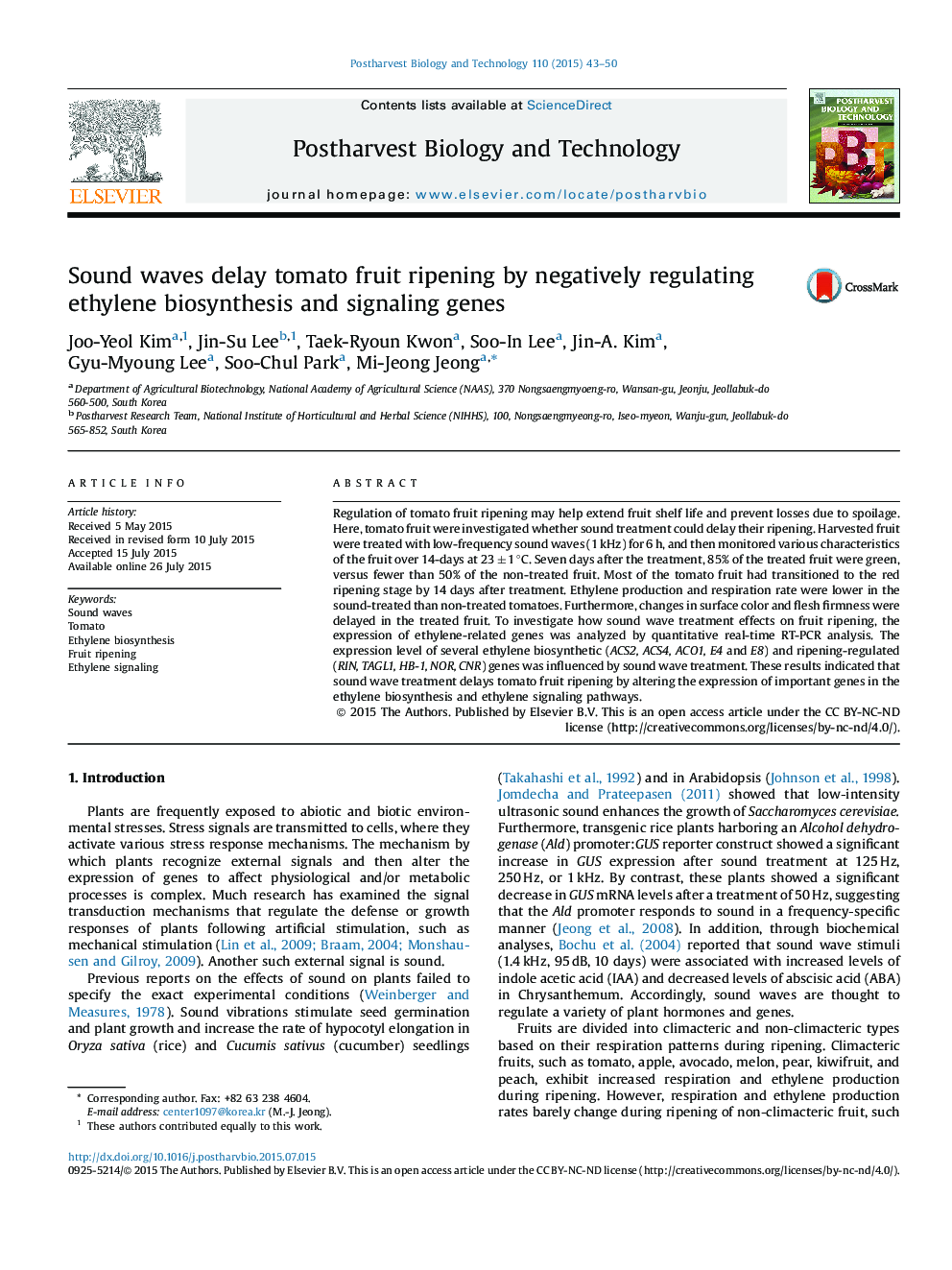| Article ID | Journal | Published Year | Pages | File Type |
|---|---|---|---|---|
| 6378618 | Postharvest Biology and Technology | 2015 | 8 Pages |
â¢Tomato treated with sound waves of 1 kHz delayed ripening compared to control.â¢Ethylene production and respiration rate were lower in the sound treated tomatoes.â¢Changes in surface color from green to red were delayed in the treated fruits.â¢mRNA level of ethylene biosynthetic genes was very low in the sound treated fruits.
Regulation of tomato fruit ripening may help extend fruit shelf life and prevent losses due to spoilage. Here, tomato fruit were investigated whether sound treatment could delay their ripening. Harvested fruit were treated with low-frequency sound waves (1 kHz) for 6 h, and then monitored various characteristics of the fruit over 14-days at 23 ± 1 °C. Seven days after the treatment, 85% of the treated fruit were green, versus fewer than 50% of the non-treated fruit. Most of the tomato fruit had transitioned to the red ripening stage by 14 days after treatment. Ethylene production and respiration rate were lower in the sound-treated than non-treated tomatoes. Furthermore, changes in surface color and flesh firmness were delayed in the treated fruit. To investigate how sound wave treatment effects on fruit ripening, the expression of ethylene-related genes was analyzed by quantitative real-time RT-PCR analysis. The expression level of several ethylene biosynthetic (ACS2, ACS4, ACO1, E4 and E8) and ripening-regulated (RIN, TAGL1, HB-1, NOR, CNR) genes was influenced by sound wave treatment. These results indicated that sound wave treatment delays tomato fruit ripening by altering the expression of important genes in the ethylene biosynthesis and ethylene signaling pathways.
